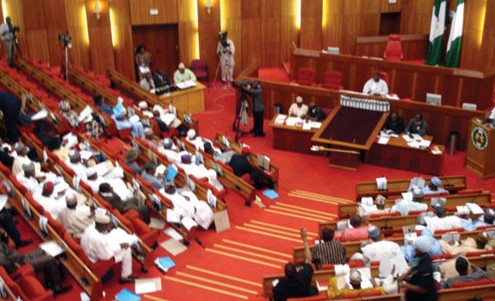
All eyes are now on the National Assembly, (NASS) as to whether they will use their legislative powers to override the president in the event that he refuses to assent to the electoral bill.
“Yes. I can confirm that the President has received a communication from the honourable minister on the matter but honestly, I am not privy to the content of the communication. I have not been briefed,” the presidential aide told Punch Newspapers.Meanwhile, a source at the Ministry of Justice said the minister highlighted the grey areas of the bill in his letter to the president. “The AGF has sent his advice on the Electoral Act amendment bill to the President. He has highlighted the problems of the bill.
“The AGF, however, did not quote any section of the law that makes it illegal which is unlike the previous letters he writes to the President.”
Another source close to the AGF said he (Malami) was worried that forcing all parties to adopt the direct mode of primary would mean that all existing parties would have to change their constitutions.
The source stated, “The office of the AGF sent its position two weeks ago. They raised a number of issues. For instance, if you are asking political parties to run direct primaries, from a strictly legal point of view that would mean that only new political parties will be bound by the law.
“Existing political parties will not, because they have registered their parties, they have filed their constitution long time ago on the basis of what is contained there. And most of it is a mixture, if you check the parties, direct and indirect primaries are stated.
“So, are you going to change their constitutions for them? So, this is the legal opinion. But this is just one. There are several other legal positions which favour and disfavour the bill because, as the Minister of Justice, his duty is to tell the president the pros and the cons. It is now up to the President to decide on which way to go.”










